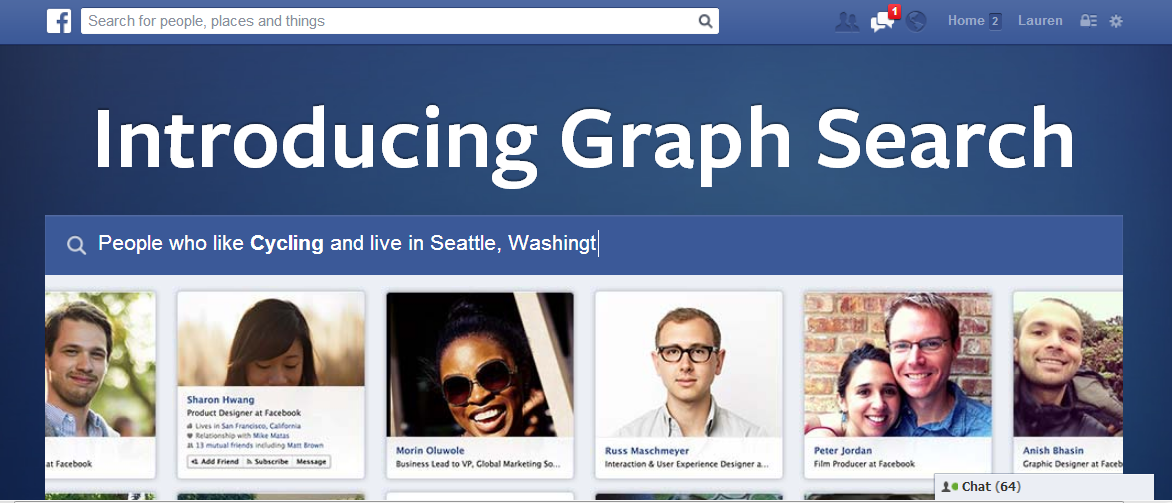Changes to social media marketing are underway, as both search and social sites aim to become all-in-one platforms. If internet users adopt new functions from their favorite platforms, they will no longer need to navigate from one site to the next in order to conduct internet queries or reply to a friend’s question. Facebook looks to achieve this effect with its Graph Search, a feature that’s being rolled out to wider audiences after a successful initial beta launch.
The social network giant recently announced it’s moving forward with the Graph Search, explaining the function will be rolled out on a sweeping scale to all members who use Facebook in U.S. English over the next few weeks.
The search bar pulls from its massive user database to serve answers to questions or help people find nearby restaurants that family members and friends recently visited. Account holders can also use Facebook Graph to identify individuals who they might want in their networks, such as members with the same Alma Mater in a local region. Facebook asserts the search function provides faster query results, more accurate answers and better user experience.
If consumers agree that social and search algorithms combined provide better results, Facebook could become a threat for major search engines.
If consumers agree that social and search algorithms combined provide better results, Facebook could become a threat for major search engines by holding onto traffic that usually redirects to their domains. Brafton previously reported the network ranked fourth on comScore’s list of Top 50 Web Properties in the United States during May 2013. It came in just behind Google, Yahoo and Microsoft sites.
The marriage of search and social, two traditionally separate wheelhouses, presents opportunities and threats to brands’ internet marketing practices. If they invest strategically, their online content becomes even more visible to target markets, while hedging their bets incorrectly translates to missed prospects.





